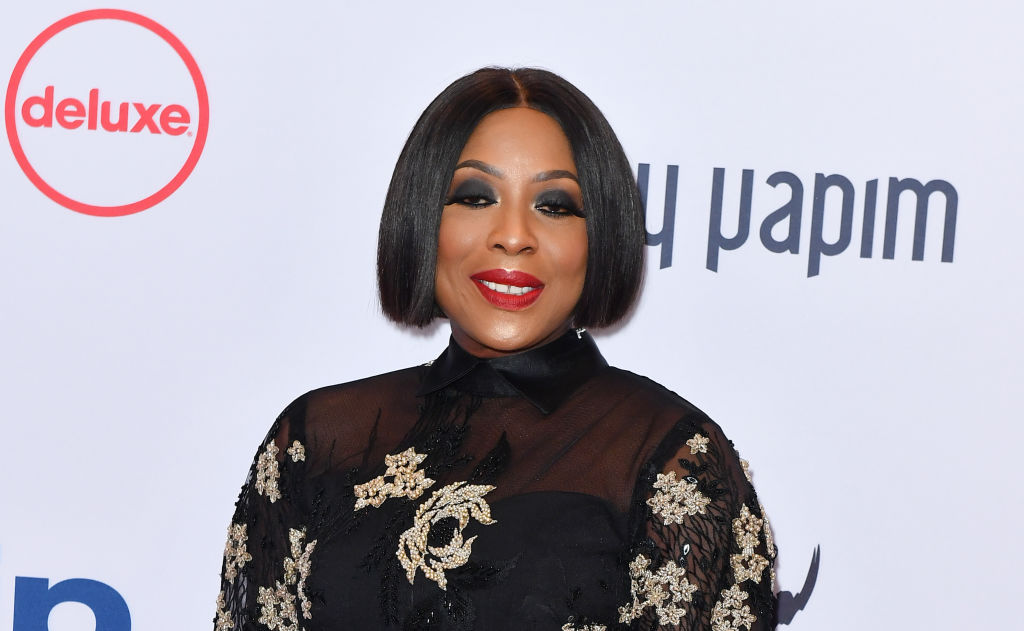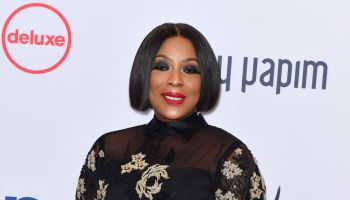
Source: ANGELA WEISS / Getty
Nigerian media mogul Mo Abudu is on a mission to bring stories from her home country and the rest of the continent to the forefront in an effort to see that western entertainment doesn’t continue to dominate the mainstream. And now that the 57-year-old—who has been lauded as “Africa’s answer to Oprah”—has a multitude of TV and film titles airing on Netflix and other platforms, she may just be well on her way to manifesting that reality.
According to the New York Times, last year, Abudu’s media company, EbonyLife, became the first African platform to sign a multi-title film and TV deal with Netflix.
Last week, Netflix aired season 2 of EbonyLife’s law drama Castle & Castle after the first season debuted in 2018 on the EbonyLife broadcast network, which is no longer operating as Abudu made the decision to switch to streaming services and other mediums to produce her content.
Besides Castle & Castle, Abudu’s company also produced the Netflix Original film Oloture, a drama that explores human trafficking and forced prostitution. Next year, EbonyLife is bringing to Netflix its film Blood Sisters, which explores drug addiction and domestic violence in Nigeria.
But Netflix isn’t holding Abudu’s only bag. Other projects she has under her belt include “a TV drama from Sony Pictures Television about the historical all-female West African army known as the Dahomey Warriors,” according to the Times, and well as Nigeria 2099, a dystopian drama series set to air on AMC.
“Never was I ever taught anything about African history,” Abudu told the Times of her experience growing up in London. “It affected me in such a way that I felt like I didn’t count. You therefore always felt a need to overcompensate by telling everybody who cared to listen who you were.”
As Black people in America, we know all about the lack of representation she’s talking about because we still suffer under it coming from our own country. Still, Abudu is talking about that same experience on a macro level as she believes western media has neglected programming from Africa and the rest of the world, and that’s a long-standing trend that she’s on a quest to change.
“I think people are tired of storytelling, to a certain extent, from the West because you’re seeing the same stories time and time again — can I just have something new, something fresh?” she said. “And I think the likes of Netflix have understood this.”
“Gone are the days whereby you can force-feed me only American content,” Abudu said in a separate interview. “They don’t own all the stories to be told in this world. They’ve had their fair share of telling them.”
She also said her fight to broaden the global mainstream is nothing new as she’s “been knocking on these international doors from Day 1, but you know, people weren’t ready to listen.”
Well, with her company’s Netflix ventures, as well as its deals with other networks, it appears that the world is now “ready to listen,” and she’s intending not to waste the opportunity and plans on telling stories from South Africa, Kenya, Ghana and Ethiopia as well.
And even if she had to move to the U.S. in order to run her media empire, she would still be bringing home and culture with her.
“I will never be lost to my roots,” she said. “It’s not possible, even if I’m living and working and breathing in Hollywood. They cannot have me to a point whereby I’m ever going to forget where I came from. I think it’s important because by me making that transition, I am taking a whole bunch of people with me on that journey.”
















